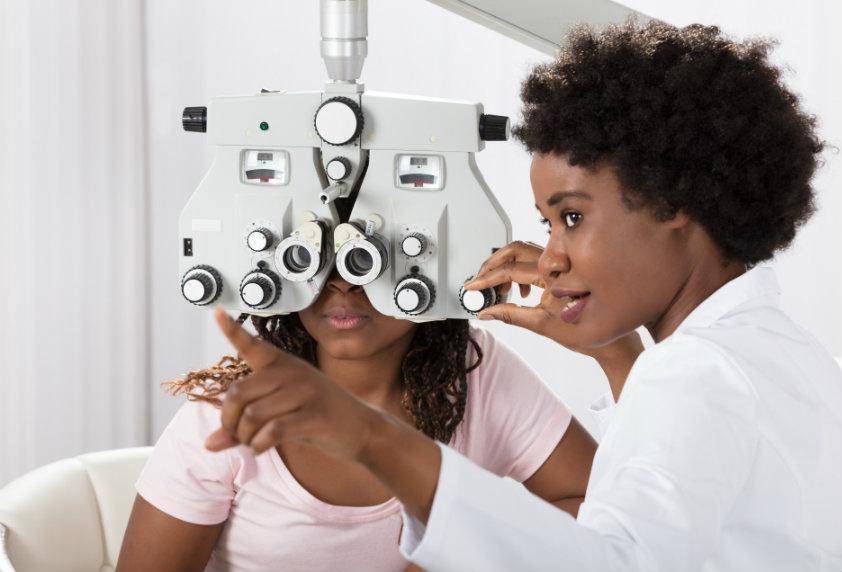Sometimes it can be tricky to understand just what responsibility an eye doctor has – especially if you visited several different specialists, each with different roles. What do all these Eye Doctors do? Well, professional eye specialists are typically divided into three different groups – optometrists, ophthalmologists, and opticians. Let’s take a look at the important roles each doctor has.
Optometrist
The optometrist specializes in optometry, which requires a specific degree that takes four years of a graduate program in the sciences as well as four years of professional training at an optometry school. They deal primarily in vision and common problems with eyes. When you go in to get your vision checked, these are the doctors that ask you to stare at the chart and shine bright lights in your eyes. They primarily offer advice and treatments to improve vision, including writing prescriptions for contact lenses or eyewear. They may also talk over alternatives like laser eye surgery, depending on your conditions and questions.
However, optometrists also pay attention to eye problems beyond vision. Many health problems can be picked up by observant optometrists looking at the shape and condition of your eyes. They also track many ongoing eye problems like cataracts, and can suggest corrective treatments to deal with these issues.
Ophthalmologist
An ophthalmologist specializes in more advanced eye care and treatments designed to restore vision and health to your eyes. Often optometrists refer patients to ophthalmologists for a specialized opinion, surgery, medications, and a variety of other options. Ophthalmologists undergo more training for their positions, including four years of college, four years of medical school, an internship and at least three years of residency.
Ophthalmologists will typically examine your eyes for specific issues after a referral (not always necessary, but common). They can diagnose a variety of diseases or conditions accurately, and find a treatment plan that works for you. If you need eye surgery for a variety of reasons, it will be an ophthalmologist who performs the surgery. They can also take on some tasks of the optometrist, like writing prescriptions for corrective eyewear, especially if it is to correct a more unusual vision problem.
Optician
Technically an optician isn’t an eye doctor, but they are still very important. In fact, like a dental hygienist, you are likely to see more of them than an actual eye doctor! Their job is to take the prescription for glasses or contacts and find the right fit for your eyes in terms of both appearance and comfort.
